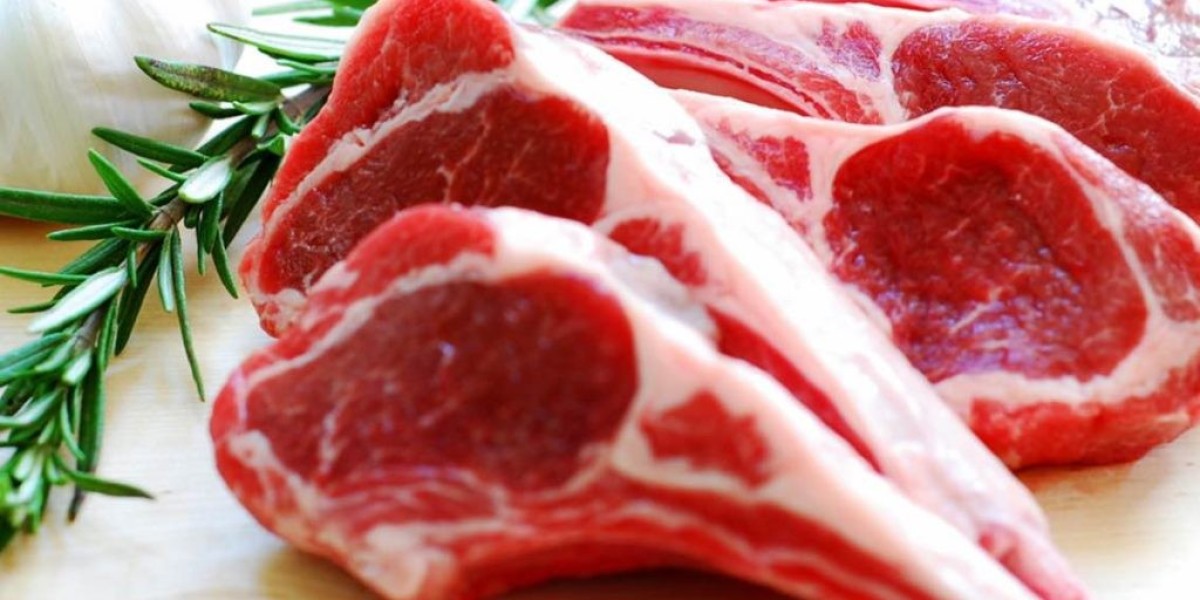The Quest for Purity: Navigating Halal Beef and Your Local Halal Grocery
In an increasingly globalized world, finding food that aligns with one's dietary and ethical principles has become a significant consideration for many. For millions of Muslims worldwide, and a growing number of health-conscious consumers, this means seeking out halal beef near me and stocking their pantries from halal grocery stores. But what exactly does halal mean, why is it so important, and how can consumers navigate the market to ensure they are making truly permissible choices?
Understanding Halal: More Than Just a Label
The Arabic word halal translates to permissible or lawful in English. In the context of food, it refers to items that are prepared, processed, and stored according to Islamic dietary laws (Shariah). While often associated primarily with meat, the principles of halal extend to all food products, encompassing everything from dairy and grains to fruits and vegetables, and even the utensils and machinery used in their production.
For meat to be considered halal, several stringent conditions must be met, collectively known as dhabiha. These include:
- Permitted Animal Species: Only certain animals are permissible for consumption, such as cattle, sheep, goats, and poultry. Pork and its by-products are strictly forbidden (haram), as are carnivorous animals, birds of prey, and certain amphibians.
- Humane Treatment: Islamic teachings emphasize the compassionate and respectful treatment of animals throughout their lives. This means animals must be well-cared for, fed naturally, and not subjected to undue stress or cruelty before slaughter.
- Method of Slaughter: The dhabiha method requires a swift, deep incision across the animal's throat, severing the jugular veins, carotid arteries, and windpipe, but leaving the spinal cord intact. This is believed to minimize pain and ensure complete blood drainage.
- Invocation of Allah's Name: The slaughter must be performed by a sane, adult Muslim, who recites Bismillah, Allahu Akbar (In the name of God, God is greatest) just before the cut. This acknowledges that the animal's life is taken with divine permission.
- Complete Blood Drainage: The thorough draining of blood from the carcass is crucial, not only for religious compliance but also for hygiene and the quality of the meat, as blood can harbor bacteria and affect taste.
- Prevention of Cross-Contamination: Halal meat must be processed, stored, and transported separately from non-halal products to prevent any contamination. This often necessitates dedicated facilities and equipment.
The emphasis on ethical treatment, hygiene, and strict processing standards means that halal meat is often seen as a safer, cleaner, and more humane option, appealing to a broader consumer base beyond the Muslim community.
The Growing Demand for Halal Beef Near Me
The increasing Muslim population globally, coupled with a rising awareness among non-Muslims about the ethical and health benefits of halal beef near me, has fueled a significant expansion of the halal food market. Consumers are actively searching for halal beef near me to ensure their meat purchases align with these principles.
This demand has led to a proliferation of options:
- Dedicated Halal Butcher Shops: These are often the most reliable source, as their entire operation is committed to halal standards. Staff are typically knowledgeable about sourcing and preparation, and can provide detailed information about their products.
- Specialty Halal Grocery Stores: Beyond just meat, these stores offer a comprehensive range of halal-certified products, from pantry staples to dairy, baked goods, and even frozen meals. They are a one-stop shop for consumers seeking a fully halal lifestyle.
- Mainstream Supermarkets with Halal Sections: Recognizing the growing market, many larger supermarket chains are now incorporating dedicated halal sections. While convenient, consumers should still look for clear halal certification labels and understand the specific certifying body.
- Online Halal Meat Suppliers: E-commerce has also entered the halal market, with numerous online retailers specializing in certified halal meat and groceries, offering convenience and direct-to-door delivery. It's crucial to verify the reputation and certification of these online stores.
When seeking out halal beef, checking for reputable certification marks is paramount. Organizations like the Halal Food Standards Alliance of America (HFSAA), Halal Monitoring Services (HMS), and Halal Monitoring Committee (HMC) play a vital role in ensuring that products meet rigorous halal standards through audits and inspections.
The Halal Grocery Experience: A World of Permissible Delights
Beyond beef, the halal grocery offers a complete shopping experience rooted in Islamic dietary guidelines. This means a careful curation of products that are free from haram ingredients (like pork, alcohol, and certain animal by-products), and that have been processed and handled in a permissible manner.
Shopping at a halal grocery often involves:
- Careful Label Reading: While many products will bear a halal certification logo, consumers still need to be diligent in checking ingredients lists, especially for processed foods. Certain E-codes (food additives) can be derived from haram sources, requiring extra vigilance.
- Diverse Product Range: Halal groceries typically offer a wide array of international foods, spices, and ingredients catering to the diverse culinary traditions of Muslim communities around the world. This can be a culinary adventure for anyone!
- Focus on Freshness and Quality: Many halal groceries prioritize fresh produce, high-quality dairy, and ethically sourced goods, aligning with the holistic principles of halal.
- Community Hub: For many, the halal grocery is more than just a place to shop; it's a community hub where people can connect, share recipes, and find culturally relevant products.
While halal products can sometimes be pricier due to the rigorous certification process, ethical sourcing, and dedicated supply chains, many consumers find the added cost a worthwhile investment in quality, ethics, and peace of mind. Savvy shoppers can often save money by buying staples in bulk, utilizing online retailers, and taking advantage of weekly deals.






